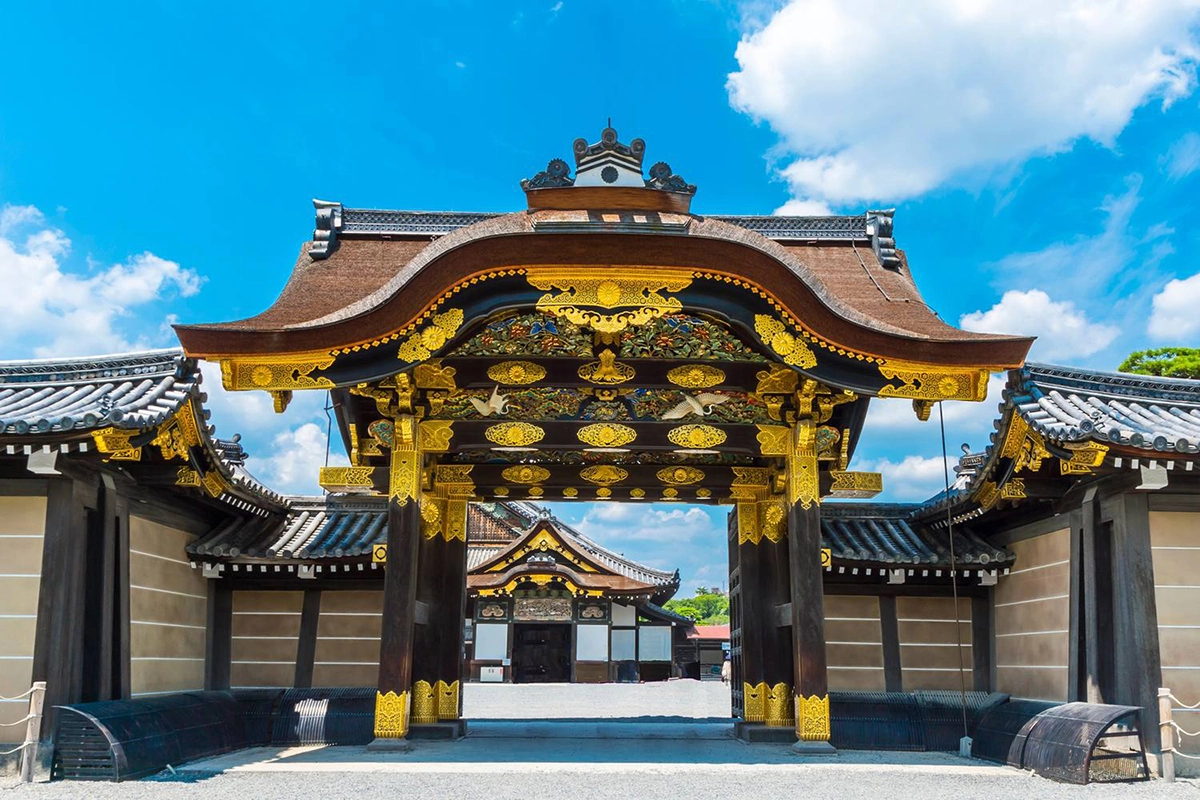Nijō Castle
二条城
UNESCO World Heritage Site
Nijo Castle is a UNESCO World Heritage site located in Kyoto, Japan. The castle was built in 1603 by the first shogun of the Edo period, Tokugawa Ieyasu.

UNESCO World Heritage Site
Call this number
Google Map in English
Google Maps in Japanese
As you wander the enchanting streets of Kyoto, a city that effortlessly marries ancient tradition with modernity, a hidden gem awaits your discovery. Nestled in the heart of this historical city, amidst a tapestry of cherry blossoms and tea houses, lies a UNESCO World Heritage site that embodies the very essence of Japan’s rich cultural legacy: Nijo Castle. This magnificent castle, a testament to the genius of its time, serves as a bridge between the past and the present, inviting you to explore a world where tradition meets innovation.
Tokugawa Ieyasu, the visionary first shogun of the Edo period, envisioned a castle that would not only serve as a symbol of power but also as an architectural masterpiece. In 1603, his dream came to life as the grandeur of Nijo Castle graced the Kyoto skyline. The castle, initially used as an imperial palace until 1867, has since transformed into a mecca for history enthusiasts and travelers from around the globe.
Nijo Castle stands as a living testament to the convergence of traditional Japanese design and Western influences. Its architecture showcases the dexterity of its builders in combining the best of both worlds, creating a unique and impressive structure that stands unrivaled in beauty and significance.
The beauty of Nijo Castle extends far beyond its imposing walls. As you approach, the lush gardens that surround the castle embrace you, inviting you to explore their serenity. A gently flowing moat adds to the castle’s grandeur, making your visit feel like a journey into a serene paradise.
The castle’s defenses are designed with precision, featuring two concentric rings of fortifications. The inner ring reveals the main palace area, a place of historical importance and architectural brilliance. Here, the Ninomaru Palace hosted important meetings and ceremonies, where whispers of power and diplomacy once echoed through its exquisite halls. The Honmaru Palace, on the other hand, served as the shogun’s private quarters, a place of personal reflection and governance.
Nijo Castle’s claim to fame isn’t just its architectural beauty but also its “nightingale floors.” With each step, they produce a gentle chirping sound, a brilliant security measure of their time, alerting the guards to any potential intruders. These floors resonate with history and secrets, their gentle melodies a reminder of a past steeped in intrigue and elegance.
The castle’s interiors are adorned with intricate gold leaf designs and detailed wood carvings that tell stories of a bygone era. Exquisite paintings and carvings adorn the walls, each a testament to the craftsmanship and artistry that thrived during the castle’s construction.
Beyond its remarkable architecture and aesthetic beauty, Nijo Castle holds an unparalleled historical significance. It was a stage where the Tokugawa shogunate rose to power, shaping Japan’s destiny. It also witnessed the pivotal moment when Japan surrendered to the Allied Powers after World War II. Nijo Castle isn’t just a building; it’s a living history book, carefully preserved and revered as a symbol of Japan’s rich cultural heritage.
Visiting Nijo Castle is like stepping into a time machine, where history and beauty are perfectly entwined. It’s a place where the past whispers its secrets and stories from centuries gone by resound in every stone and chirping floorboard. Kyoto, the city of a thousand temples, finds its crowning jewel in Nijo Castle, an embodiment of grace and strength.
As you explore the castle’s intricacies, you’ll find yourself transported to a world where past and present coexist harmoniously. The enchanting gardens, the majestic architecture, and the echoes of history will leave you with a profound appreciation for the timeless allure of Nijo Castle, a place where elegance and heritage meet in a symphony of whispers that beckon you to explore, learn, and be inspired.
Contact us at [email protected], or click here to use our contact form.
Submission successful. You will receive a confirmation email, shortly.